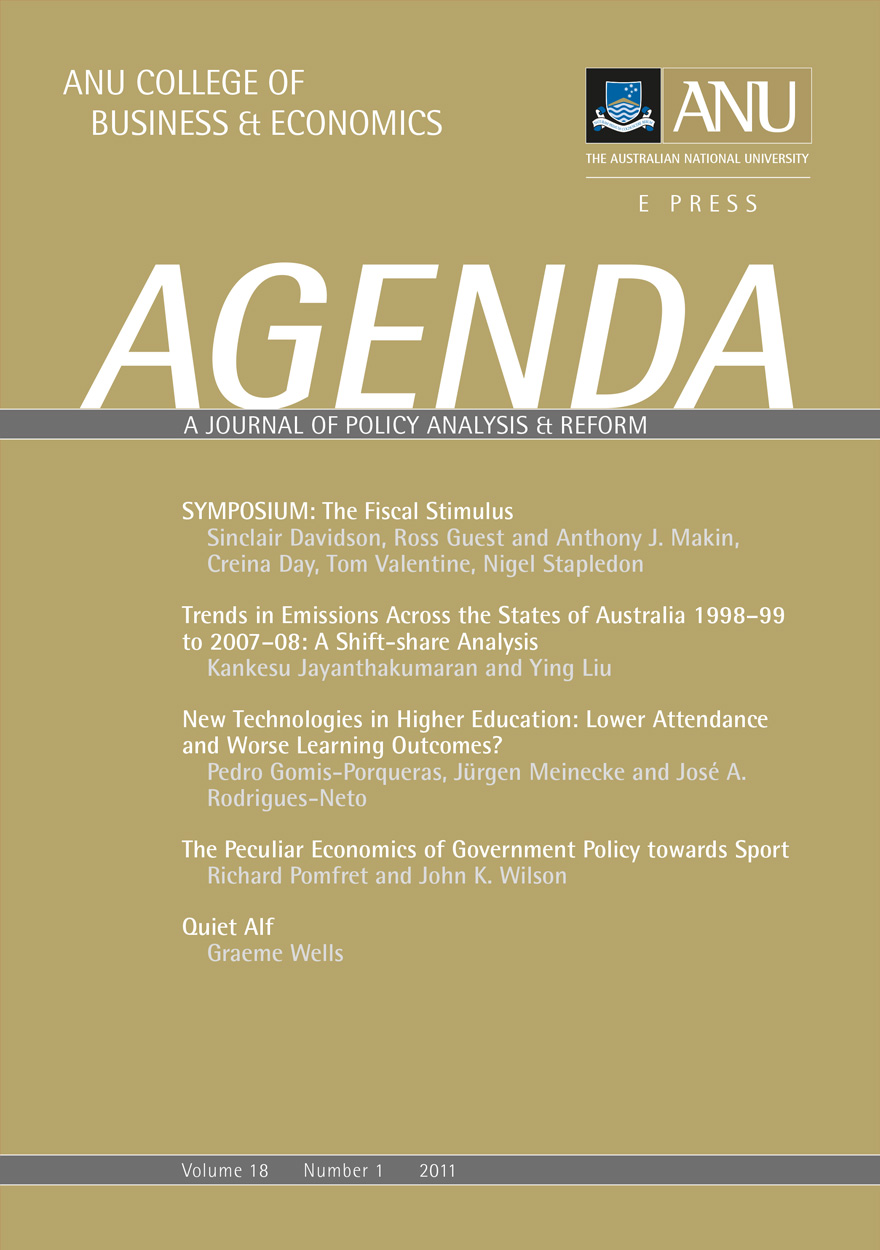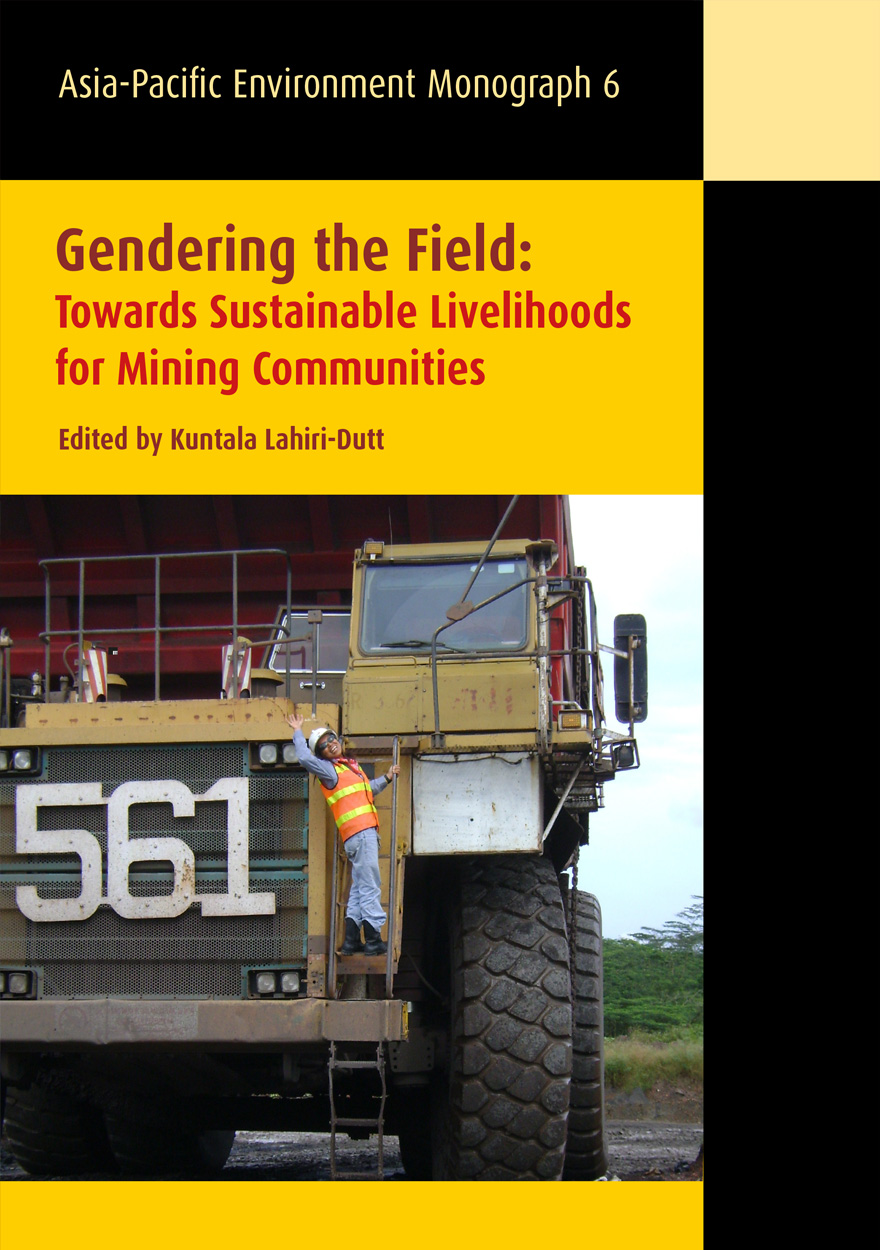Search titles
Displaying results 91 to 100 of 130.

East Asia Forum Quarterly: Volume 3, Number 2, 2011 »
Publication date: July 2011
East Asia Forum Quarterly grew out of East Asia Forum (EAF) online, which has developed a reputation for providing a platform for the best in Asian analysis, research and policy comment on the Asia Pacific region in world affairs. EAFQ aims to provide a further window onto research in the leading research institutes in Asia and to provide expert comment on current developments within the region. The East Asia Forum Quarterly, like East Asia Forum online, is an initiative of the East Asia Forum (EAF) and its host organisation, the East Asian Bureau of Economic Research (EABER) in the Crawford School of Economics and Government in the College of Asia & the Pacific at The Australian National University.
Download for free
Not available for purchase

China: The Next Twenty Years of Reform and Development (Chinese version) »
中国:未来二十年的改革与发展
Publication date: June 2011
过去30年,中国在经济改革和对外开放方面取得了巨大成就,从而成为世界上举足轻重的一个经济体。不过,在改革与发展的进程中,仍然存在许多没有解决的问题,也会面临诸多新的挑战。本书旨在关注以下问题:中国如何深化要素市场等颇具争议的领域的改革;如何改革汇率体制和医疗卫生体系,同时,这些改革需要有强有力且高效的配套政策措施,中国才可能应对一系列挑战。这些挑战包括:如何应对劳动力无限供给时代的结束;如何在减少全球贸易失衡中担当建设性的角色;如何提高企业的创新能力;如何应归史无前例的移民、城市化和社会不平等问题;以及如何在低碳发展成为唯一路径的条件下,解决能源和金属使用量增长带来的排放问题。
下载前请阅读下载须知
免费下载文件章节
Chinese print version of this book is available from Social Science and Academic Press

Rising China: Global Challenges and Opportunities »
Edited by: Jane Golley, Ligang Song
Publication date: June 2011
Where the last three decades of the 20th century witnessed a China rising on to the global economic stage, the first three decades of the 21st century are almost certain to bring with them the completion of that rise, not only in economic, but also political and geopolitical terms. China’s integration into the global economy has brought one-fifth of the global population into the world trading system, which has increased global market potential and integration to an unprecedented level. The increased scale and depth of international specialisation propelled by an enlarged world market has offered new opportunities to boost world production, trade and consumption; with the potential for increasing the welfare of all the countries involved.
However, China’s integration into the global economy has forced a worldwide reallocation of economic activities. This has increased various kinds of friction in China’s trading and political relations with others, as well as generating several globally significant externalities. Finding ways to accommodate China’s rise in a way that ensures the future stability and prosperity of the world economy and polity is probably the most important task facing the world community in the first half of the 21st century. The book delves into these issues to reflect upon the wide range of opportunities and challenges that have emerged in the context of a rising China.
Chinese translation

Double Vision »
Asian Accounts of Australia
Edited by: Alison Broinoswki
Publication date: May 2011
Do Australians care about what their Asian neighbours think of them — and does it matter if they don’t? This collection of essays reveals that admiration for Australia is not widespread, particularly among Japanese and Chinese commentators. And how our Asian neighbours perceive Australia is important: perceptions have a powerful effect on the way different societies respond to one another.
As part of the Asian Accounts of Australia project, this volume addresses a much-neglected issue and presents the views of pre-eminent scholars on how Australia is perceived among Chinese and Japanese and what this means for our future. Can Australia make the most of its opportunities to be well regarded and influential in China and Japan or will we be dismissed as a derivative culture, ignorant about our region?

East Asia Forum Quarterly: Volume 3, Number 1, 2011 »
Publication date: April 2011
East Asia Forum Quarterly grew out of East Asia Forum (EAF) online, which has developed a reputation for providing a platform for the best in Asian analysis, research and policy comment on the Asia Pacific region in world affairs. EAFQ aims to provide a further window onto research in the leading research institutes in Asia and to provide expert comment on current developments within the region. The East Asia Forum Quarterly, like East Asia Forum online, is an initiative of the East Asia Forum (EAF) and its host organisation, the East Asian Bureau of Economic Research (EABER) in the Crawford School of Economics and Government in the College of Asia & the Pacific at The Australian National University.
Download for free
Not available for purchase

Agenda - A Journal of Policy Analysis and Reform: Volume 18, Number 1, 2011 »
Edited by: William Coleman
Publication date: April 2011
Agenda is a refereed, ECONLIT-indexed and RePEc-listed journal of the College of Business and Economics, The Australian National University. Launched in 1994, Agenda provides a forum for debate on public policy, mainly (but not exclusively) in Australia and New Zealand. It deals largely with economic issues but gives space to social and legal policy and also to the moral and philosophical foundations and implications of policy.
Subscribe to the Agenda Alerting service if you wish to be advised on forthcoming or new issues.
Download for free
Not available for purchase

Gendering the Field »
Towards Sustainable Livelihoods for Mining Communities
Edited by: Kuntala Lahiri-Dutt
Publication date: March 2011
The chapters in this book offer concrete examples from all over the world to show how community livelihoods in mineral-rich tracts can be more sustainable by fully integrating gender concerns into all aspects of the relationship between mining practices and mine affected communities. By looking at the mining industry and the mine-affected communities through a gender lens, the authors indicate a variety of practical strategies to mitigate the impacts of mining on women’s livelihoods without undermining women’s voice and status within the mine-affected communities.
The term ‘field’ in the title of this volume is not restricted to the open-cut pits of large scale mining operations which are male-dominated workplaces, or with mining as a masculine, capital-intensive industry, but also connotes the wider range of mineral extractive practices which are carried out informally by women and men of artisanal communities at much smaller geographical scales throughout the mineral-rich tracts of poorer countries.

Ethnography & the Production of Anthropological Knowledge »
Essays in honour of Nicolas Peterson
Edited by: Yasmine Musharbash, Marcus Barber
Publication date: February 2011
Professor Nicolas Peterson is a central figure in the anthropology of Aboriginal Australia. This volume honours his anthropological body of work, his commitment to ethnographic fieldwork as a source of knowledge, his exemplary mentorship of generations of younger scholars and his generosity in facilitating the progress of others. The diverse collection produced by former students, current colleagues and long-term peers provides reflections on his legacy as well as fresh anthropological insights from Australia and the wider Asia-Pacific region. Inspired by Nicolas Peterson’s work in Aboriginal Australia and his broad ranging contributions to anthropology over several decades, the contributors to this volume celebrate the variety of his ethnographic interests. Individual chapters address, revisit, expand on, and ethnographically re-examine his work about ritual, material culture, the moral domestic economy, land and ecology. The volume also pays homage to Nicolas Peterson’s ability to provide focused research with long-term impact, exemplified by a series of papers engaging with his work on demand sharing and the applied policy domain.

The Hmong of Australia »
Culture and Diaspora
Edited by: Nicholas Tapp, Gary Yia Lee
Publication date: November 2010
The Hmong are among Australia’s newest immigrant populations. They came as refugees from Laos after the communist revolution of 1975 ended their life there as highland shifting cultivators. The Hmong originate from southern China where many still remain, and others live in Vietnam, Thailand and Burma. Hmong refugees are now also settled in the USA, Canada, France, Germany and French Guyana. Already the beauty and richness of traditional Hmong culture, in particular their shamanism and embroidered costume, has attracted the attention of the Australian public, but little is known about these people, their background or the struggles they have faced to adjust to a new life in Australia.This interdisciplinary collection of articles deals with their music and textiles, gender and language, their social adaptation and their global diaspora. The book aims to bring knowledge of the Hmong to a wider public and contribute to the understanding of these people.

East Asia Forum Quarterly: Volume 2, Number 4, 2010 »
Publication date: October 2010
East Asia Forum Quarterly grew out of East Asia Forum (EAF) online, which has developed a reputation for providing a platform for the best in Asian analysis, research and policy comment on the Asia Pacific region in world affairs. EAFQ aims to provide a further window onto research in the leading research institutes in Asia and to provide expert comment on current developments within the region. The East Asia Forum Quarterly, like East Asia Forum online, is an initiative of the East Asia Forum (EAF) and its host organisation, the East Asian Bureau of Economic Research (EABER) in the Crawford School of Economics and Government in the College of Asia & the Pacific at The Australian National University.
Download for free
Not available for purchase



